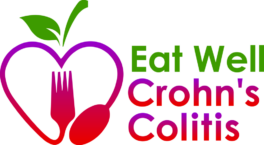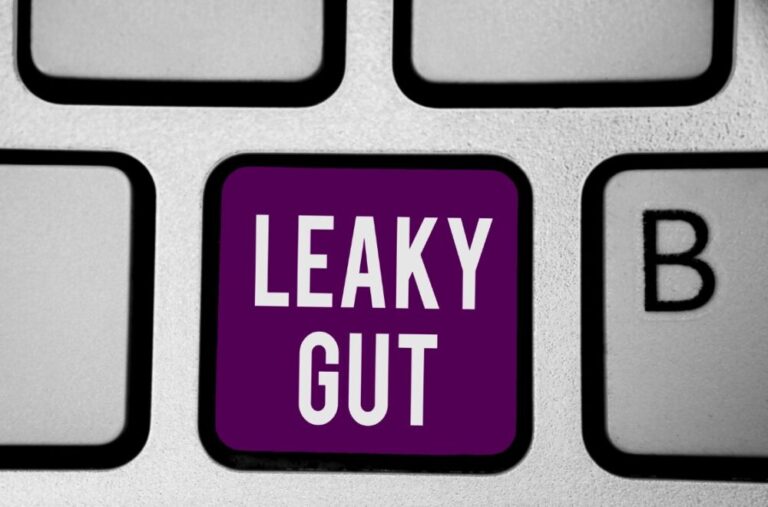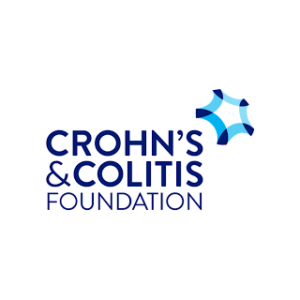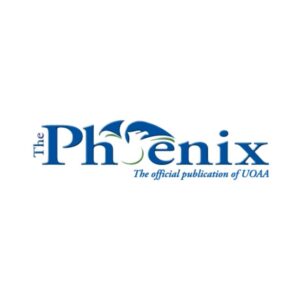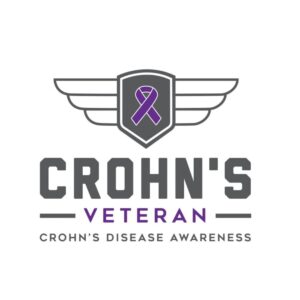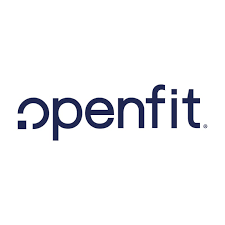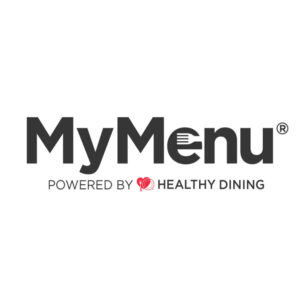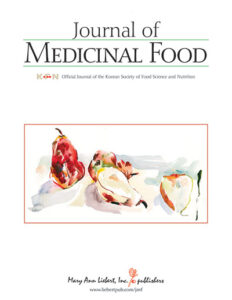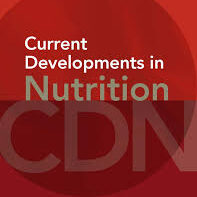New Research Study Suggests “diet may have an under-appreciated role in the treatment of UC“
Danielle Gaffen, MS, RDN, LD
- Last Updated
Fast Facts About the Study
Title of Publication:
- Use of Fecal transplantation with a novel diet for mild to moderate active ulcerative colitis: The CRAFT UC randomized controlled trial
Journal Where Published:
- Journal of Crohn’s and Colitis
Publication Date:
- October 2021
Purpose of Study:
- To evaluate whether diet and/or fecal transplants could increase remission rate in people with refractory ulcerative colitis (UC) (whose UC has not responded to topical and oral mesalamine and corticosteroids (like prednisone)).
Methods:
- This was a blinded randomized controlled trial in adults with active UC, and the primary endpoint of the study was week 8 with steroid-free, clinical remission.
- Group 1 received a fecal transplant but did not have to follow a specific diet.
- Group 2 received a fecal transplant, with the fecal donor following a specific diet 14 days pre-transplant, and the research participants following a novel UC Exclusion Diet (UCED).
- Group 3 did not receive a fecal transplant but followed the UCED diet.
Results:
Endoscopic remission was achieved by the following:
- Group 1: 2 research participants out of 17 in this group (12%)
- Group 2: 3 research participants out of 19 in this group (16%)
- Group 3: 4 research participants out of 15 in this group (27%)
Mucosal healing was achieved only in research participants from Group 3 (3 research participants out of 15 in this group, or 20%) vs. 0 out of the other two groups’ research participants (p=0.022).
Conclusions:
- The UC Exclusion Diet alone appeared to achieve higher clinical remission and mucosal healing than fecal transplantation, suggesting diet may have an under-appreciated role in the treatment of UC
More information about the research publication
Introduction
The manner of development of UC is still unknown, but recent studies have suggested that UC is associated with a change in the gut microbiome, with some research studies pointing to an increased number in pathogenic bacteria and less beneficial bacteria when compared to a gut that does not have UC. Changing the gut microbiome bacteria balance has become a hot topic for IBD interventions and research studies.
While dietary therapy has been successfully used in mild to moderate Crohn’s disease, dietary interventions for UC are just starting to be explored.
In addition to diet, fecal transplantation has been shown to be effective in the short-term for about 30% of cases to alter the gut microbiome (thought to do so by changing the microbes present in the gut to that of the fecal sample donor).
Therefore, the researchers of this study hypothesized that incorporating a novel UC dietary intervention and donor diet of the fecal transplant donor would improve the effectiveness of the fecal transplant as a treatment for active refractory UC patients (whose UC has not responded to topical and oral mesalamine and corticosteroids (like prednisone)).
Methods
Participants were randomly placed into one of three groups:
- Group 1 was allowed to eat a normal diet and received a standard fecal transplant by colonoscopy on day 1, and rectal enemas from the same donor on days 2 and 14. Group 1 allowed researchers to evaluate the independent effect of the fecal transplant.
- Group 2 also received a fecal transplant by colonoscopy on day 1 and rectal enemas from the same donor on days 2 and 14. But with this group, the fecal transplant donor was instructed to follow a specific diet for 14 days prior to the fecal transplant. Additionally, the research participants in group 2 were asked to follow a dietary treatment with a diet (UC Exclusion Diet) after transplantation and for the following 12 weeks.
- Group 3 did not receive a fecal transplant but followed the UC Exclusion Diet. Group 3 was supposed to enable the researchers to evaluate the independent effect of diet.
Physicians enrolling patients were blinded to randomization and to performance of colonoscopy.
Inclusion/exclusion criteria
Patients could be included as research participants in this study if:
- they had an established diagnosis of UC, with the condition confined to the large intestine involving the rectosigmoid for at least 3 months
- were 18 – 70 years of age,
- had mild to moderate disease activity
- did not show improved condition outcomes to any of the following drug regimens:
- mesalamine for more than 6 weeks
- steroids for more than 14 days
- thiopurines for more than 12 weeks
- biologics for more than 12 weeks
Patients were excluded from being a part of the study if:
- they had started a new biologic in the previous 12 weeks
- had C. diff or any stool infection
- had an episode of acute severe colitis in the previous 3 months
- were on calcineurin inhibitors
- were pregnant
- had previously received a fecal transplant
- had tried the UC Exclusion Diet
- suffered from autoimmune disorders or renal failure
- had a fever higher than 38°C or current infection
- had neoplasia
- had a colectomy
Study Visits
- Research participants were seen at an initial screening and were randomly assigned into one of the three groups before colonoscopy.
- Participants were seen at a baseline visit (week 0), and again at weeks 2, 8, and 12. A telephone conversation to assess Clinical Colitis Activity was made at week 1 and week 7.
- At each visit, adverse events and medications were recorded and Clinical Colitis Activity, a Physical Global Assessment, a complete blood count, CRP, albumin and complete chemistry panel were performed.
- All patients without change in therapy had a repeat sigmoidoscopy performed at week 8 with Mayo scoring of the most inflamed segment.
- Participants met with a coordinator/dietitian after colonoscopy. Participants in Group 1 did not receive any dietary instruction, while Group 2 and Group 3 received detailed instructions regarding the UC Exclusion Diet to be used over 12 weeks.
- A questionnaire to examine how closely participants were following the diet was completed on week 2 and 8. High adherence to the diet was ensured by a dietitian’s assessment based on direct questioning of compliance over the previous period. Poor compliance was defined by having low compliance in either assessment at any time point.
Fecal Transplant Donors
- In order to evaluate the added benefit of the donor diet on fecal transplantation and to avoid bias by fecal transplant donor selection, the same pool of fecal donors was used for Group 1 and Group 2.
- After a detailed screening process for the donors, the donors were asked to provide at least 4 stool samples during the first week prior to the diet, and then consumed an especially designed donor diet for 2 weeks, after which they provided at least another 4 stool samples.
- This allowed the patients in Group 1 to receive fecal transplants from samples before the donor’s diet, while those in Group 2 received fecal transplants from donors after the 2- week diet.
UC Elimination Diet: Dietary intervention
• Patients in Group 2 (fecal transplantation + diet) and Group 3 (diet alone) received detailed instructions for the UC Exclusion Diet by a dietitian with a uniform handout according to each stage.
• The UC Elimination Diet was designed to alter dietary components that may adversely affect goblet cells, mucus permeability, and microbiome composition, all of which have been previously linked to UC.
• The following principles guiding food exclusion and food addition included:
- decreased exposure to sulfated amino acids, protein, heme, animal fat, saturated fat, and food additives
- increased exposure to tryptophan and natural sources of pectin and resistant starch
• The UC Elimination Diet is comprised of foods that are:
- mandatory: certain fruits and vegetables
- prescribed in amounts: chicken, eggs, and yogurt
- allowed in certain quantities
- can be consumed without limitations
- disallowed foods
• The UC Elimination Diet is rich in fruits and vegetables
• The UC Elimination diet has two stages, week 0-6 and week 7-12; the latter stage is more permissive.
Results
Study population
- The researchers enrolled 8 fecal sample donors and had 51 research participants.
- An independent Data and Safety Monitoring Board reviewed the study’s preliminary results before the scheduled end point of the research study, and recommended suspension of the study after 53% of the intended research participants had been enrolled, due to the study being unlikely to reach significant fecal transplant findings.
Response and Remission
- Endoscopic remission at week 8 was highest for participants in Group 3 (diet only), of whom 26.6% achieved endoscopic remission. Endoscopic remission at week 8 was lowest in Group 1, of whom 11.7% reached endoscopic remission (p<0.38)
- In the fecal transplantation groups, there were also participants whose symptoms became worse after the fecal transplantation.
Disease Severity and Response
- There appeared to be a correlation between disease severity and outcomes, as remission was not obtained in patients with severe disease activity at enrollment, compared to 35.3% of participants with a lower disease activity.
- Patients failing biologic treatment were also less likely to achieve remission (P<.001), as only 1 out of 28 participants who did not respond to biologic medication treatment (Group 2) achieved clinical remission with the assigned intervention.
- Interestingly remission was obtained in 50% of participants in group 3 with diet alone versus 27.3% in both fecal transplant groups (p<0.25). Though not significant, doubling of remission rates with diet vs. fecal transplantation suggests that diet may be as good or better than fecal transplantation.
Donors and Outcomes
- The diet of the fecal transplant donors did not appear to have an impact upon this study’s outcomes.
Adverse Events and Compliance:
- There were no serious adverse events associated with diet or fecal transplantation.
- Adherence to the diet:
- 100% of fecal transplant donors were compliant
- 80% of participants in Group 2 were compliant at week 2, and 75% of participants in this group were compliant at week 8.
- 100% of participants in Group 3 were compliant at week 2 and week 8.
Discussion
It is perplexing to note that the very same diet that appeared to be successful for inducing clinical remission and mucosal healing in Group 3, did not appear to have this effect when combined with fecal transplantation in Group 2. The researchers could only speculate that diet alone may have succeeded better than fecal transplantation with diet because a fecal transplant during inflammation may have actually destabilized the microbiome further in patients that flared or did not respond to a fecal transplant. A second possibility is that patients in Group 2 might have had more severe disease even if this was not significant. More severe inflammation could impair the utilization of beneficial metabolites such as short chain fatty acids.
If the results of fecal transplantation were a disappointment in this trial, the effect of the diet was the unexpected silver lining. The UC Exclusion Diet appeared to be quite effective in some of the research participants, as 40% of patients failing medical therapy entered clinical remission, and only 1 patient had worsening of disease after starting the diet. There was a significant decline in disease activity (P<0.02), and the endoscopic remission data was better with diet than with a fecal transplant alone or a fecal transplant with diet. Complete mucosal healing was significantly better and occurred only in patients from group 3.
One of the strengths of the study is that the researchers used the same single donor with or without a donor diet, however there was seemingly no increase in success for fecal transplantation with post-diet samples compared to pre-diet samples. The researchers could not demonstrate any significant change in composition or diversity when comparing the stool sample for each donor before and after diet. This could be due to the short duration of the diet which might be insufficient to alter the microbiome in healthy individuals, as it did not appear to be related to compliance with the diet among the fecal sample donors. The researchers elected to use a two-week diet, as they felt that normal healthy volunteers would be unlikely to keep a restrictive diet beyond two weeks, and obtaining donors is a difficult task.
The most significant limitation of this research study is the premature closure of the study and the small sample size that resulted from it (but this was an important ethical consideration as it was unlikely that the researchers could have proven benefit for the remaining research participants, and the fecal transplantation groups could have even seen worsening symptoms).
The research study authors suggest that one of the most important take home messages from this trial is that diet may have an under-appreciated role in the treatment of UC and that further studies are required. The UCED is currently being investigated in a randomized controlled trial.
Want to chat about nutrition for your UC?
References:
